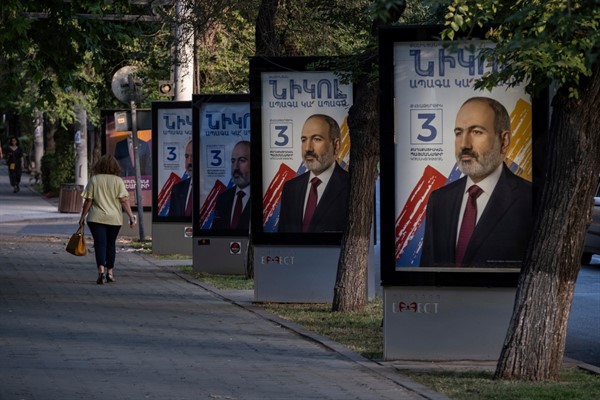Rarely has an election in a small post-Soviet country been watched so closely.
Armenia held a snap poll on June 20, after months of turbulence following its crushing defeat in an unexpected six-week war with Azerbaijan over the long-disputed region of Nagorno-Karabakh late last year. At times, the passions and pressure generated by the war’s outcome had been so intense that it looked as though the Armenian state would not survive. Yet not only did embattled Prime Minister Nikol Pashinyan survive, he won a strong new mandate, against all odds.
The fighting last year killed more than 7,000 people in total, mostly young conscripts on both sides, and left much of the disputed region under Azerbaijani control. A cease-fire brokered on Nov. 9 by Russian President Vladimir Putin confirmed a complete reversal of fortunes, in which Armenians ceded territory they had held for more than 25 years and, with it, their project of the past three decades: to build a new ethnic-Armenian state in Nagorno-Karabakh, renamed the Republic of Artsakh. With the deployment of Russian peacekeepers to the region as part of the truce, Yerevan abruptly ceded its role as patron of Nagorno-Karabakh—a majority Armenian enclave that is within the internationally recognized borders of Azerbaijan—to Moscow.

